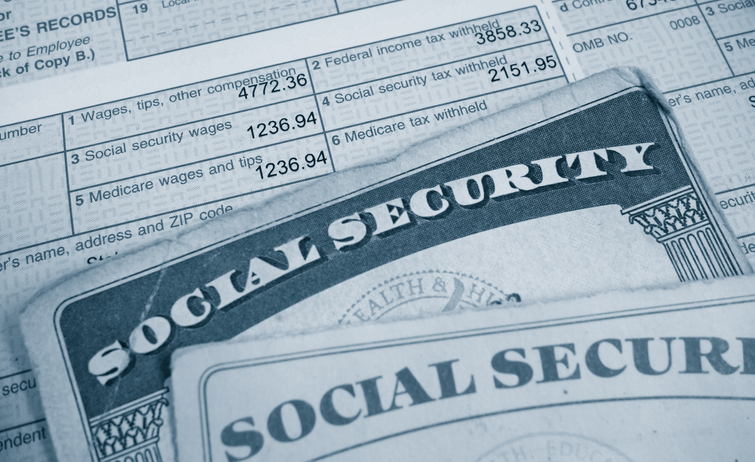Social Security benefits should not be tax free as a matter of fairness, since 85 percent of a worker’s future benefits don’t come from his payroll contributions. (Commentary)
By Kyle Pomerleau
Former President Trump recently declared that seniors should not have to pay income tax on Social Security benefits. This may be good politics, but it is bad tax policy.
Under current law, up to 85 percent of Social Security benefits are taxable. Taxpayers with Modified Adjusted Gross Income (MAGI) between $25,000 and $34,000 ($32,000 and $44,000 for married couples filing jointly) are required to add up to 50 percent of their benefits to taxable income, and taxpayers with MAGI over $34,000 ($44,000 married filing jointly) are required to add up to 85 percent of their benefits to taxable income. According to the Social Security Administration, nearly 40 percent of beneficiaries are subject to taxation on their benefits.
The tax treatment of Social Security is roughly equivalent to the taxation of private pensions. Under current law, pensions distributions made from the pre-tax tax contributions of individuals and employers are fully taxed while any distributions out of post-tax contributions are exempt from income taxation. This tax treatment results in these labor earnings being subject to taxation once: either when earned or when consumed during retirement.
Social Security benefits are a mix of pre- and post-tax dollars. Contributions, in the form of payroll taxes, are split evenly between workers and their employers. The employer-side contribution is not included in the income tax base and is effectively a pre-tax contribution. The employee-side contribution is included in the income tax base and is effectively a post-tax contribution. Although the contributions are split evenly between pre- and post-tax dollars, the portion of future benefits funded by after-tax contributions is at most 15 percent according to the Social Security Administration. This implies that at least 85 percent of future benefits should be considered taxable income.
Completely exempting Social Security benefits from income taxation would worsen basic tax fairness. There is no sound reason why two retirees with identical total pre-tax incomes should have vastly different after-tax incomes due to having different mixes of retirement saving.
Further, exempting all Social Security benefits from taxation would worsen the finances of both Social Security and Medicare. Over the next 10 years, the federal government is projected to collect $1.6 trillion between 2024 and 2033 from the taxation of Social Security benefits. This revenue helps fund both the Social Security and Medicare trust funds. According to the Committee for Responsible Federal Budget, eliminating this source of revenue would accelerate Medicare’s insolvency by six years and Social Security’s insolvency by a little more than a year.
To be sure, the tax treatment of Social Security benefits could use reform. The computation of taxable benefits is complex and the link to MAGI can discourage beneficiaries from working. Lawmakers could simplify the calculation by requiring 85 percent of benefits be added to taxable income regardless of a taxpayer’s income level or tax 85 percent of benefits in excess of a fixed benefit threshold.
Trump’s proposal is likely less about policy and more about politics. Even so, lawmakers should avoid a policy that simultaneously worsens tax fairness and the federal government’s finances.
Originally published by the American Enterprise Institute. Republished with permission.
For more Budget & Tax News.
